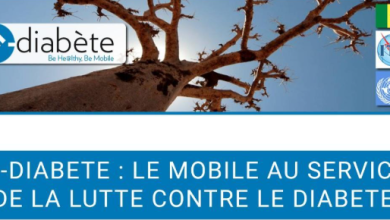
Claim: A WhatsApp message claims that the National Youth Empowerment Fund 2025 is offering cash grants to Nigerians aged 13 to 65 for business and education support.

Verdict: False. Findings show that the website promoting this claim is fraudulent and has no connection to any recognised or official government empowerment scheme.
Full Text
From when people barely understood that clicking on certain links and sharing personal details could expose them to danger, to now, when increased awareness and shared experiences have made many more cautious about online offers, phishing scams continue to mislead many. Technology has provided more avenues for online fraudsters to refine their tactics and deceive victims without immediate suspicion.
Over the years, DUBAWA has debunked several online schemes disguised here and here, as government empowerment programmes.
Recently, a message has been making rounds on WhatsApp, claiming that a National Youth Empowerment Fund for 2025 is ongoing.
The message reads, “The 2025 online registration exercise, which is the quickest way to apply, is now out for all bona fide citizens who need a helping hand in their various businesses and education. The National Youth Empowerment Fund’s vision is to give out ₦150,000 – ₦550,000 grants to every citizen under the age of 13–65. The payments have just begun for all applicants.”
The message ends with a link directing eligible applicants to proceed with their registration.
DUBAWA also found identical versions of this claim shared on Facebook and Instagram, containing the exact text and link. See samples, here, here, here, and here.
Considering our past experiences with phishing scams posing as genuine job opportunities or money-making schemes, we decided to investigate this claim to confirm its legitimacy.
Verification
DUBAWA first observed the link’s unusual appearance when clicked. The link automatically redirected us five times to a betting platform, so we immediately stopped the process. We tried again, and this time, it led us to an IP proxy platform called PSS.
Since this did not match what we were looking for, we repeated the process four more times, and each attempt led to different platforms unrelated to what the WhatsApp message described.
As this became even more suspicious, we switched from using a laptop to a mobile phone to access the link. This time, it opened a page titled “Presidential Youth Empowerment Scheme.”
Below the title was a caption that read: “The P-YES is aiming to create at least 774,000 empowerment opportunities through direct youth empowerment over a period of two years. Applicants are to fill out the form below.”
Under the caption was a table requesting the applicant’s name, phone number, country, and region. DUBAWA filled out the form as requested, which led to another page displaying supposed testimonies from people who claimed to have benefited from the platform.
We were then asked to enter the name used during registration to confirm eligibility. Instead of entering the actual name, we used a fabricated one, but rather than being declined, we received a congratulatory message claiming we were eligible for the fund. This is one of the most common signs of phishing scams.
Next, the website asked us to share the link with 50 contacts before we could receive the supposed funding. At this point, it became clear that it was another scam, as no government funding programme would make such a request.
After going through this process, DUBAWA conducted a keyword search to check for a record of a “National Youth Empowerment Fund.” The search returned no trace of such a programme.
Domain search
To dig deeper, DUBAWA carried out a domain search using the Whois tool, which helps to find information about when a website was created, who registered it, and where it is hosted.
The search showed that the website, empower-youth. online, was created on June 22, 2023, which means it has only been active for about a year. It was registered through Namecheap Inc., a platform commonly used by private individuals or businesses, not by government agencies.
The Whois result also revealed that the website is hosted in Germany by Leaseweb Deutschland GmbH, located in Frankfurt-Griesheim, Hessen. This is unusual for a platform that claims to be a Nigerian government programme, as official websites are usually hosted locally and often have .gov.ng domains.
Results from domain search
These findings, along with the strange redirections and suspicious requests made on the website, indicate that the so-called National Youth Empowerment Fund is not legitimate.
Expert’s take
Rachel Idim, a cybersecurity specialist, explained that the goal of using misleading links like this is to steal from unsuspecting job seekers or applicants.
“Hackers are very smart. The general method they use for phishing is called social engineering. They usually start by offering something people are genuinely interested in, like a real job vacancy, and then create a fake link that looks similar to a trusted one. This tricks users into following a process that eventually leads to a scam,” she said.
Rachel advised that people ignore any link that asks them to share it with others or to keep clicking through endless pages before completing an application. According to her, this method helps fraudsters spread their scam to more users while secretly collecting information from those who click, which is later used to carry out cyber theft.
She also shared a website that can be used to check if a link is authentic before clicking. See here.
Conclusion
After digging through the website and tracing its digital footprint, DUBAWA found no evidence that the National Youth Empowerment Fund exists as a government programme. The platform’s redirections, false eligibility messages, and requests for users to share the link are all indicators of a phishing scam designed to steal personal information.
 Sénégal : une vidéo manipulée sur le diabète attribuée à l’ex directeur du Centre des opérations d’urgence sanitaire
Sénégal : une vidéo manipulée sur le diabète attribuée à l’ex directeur du Centre des opérations d’urgence sanitaire  How does the new tax law affect you? Here are five key things to know
How does the new tax law affect you? Here are five key things to know No evidence new INEC chairperson, Amupitan, was Tinubu’s lawyer
No evidence new INEC chairperson, Amupitan, was Tinubu’s lawyer Misleading! Freetown International Airport not best in Africa
Misleading! Freetown International Airport not best in Africa